Solid Body Electric Guitarmaking Class
Weclome to the SIMSCal solid body electric guitarmaking class. In this class, you will learn to build a basic solid body electric guitar, modeled after the classic Fender Telecaster™ design.
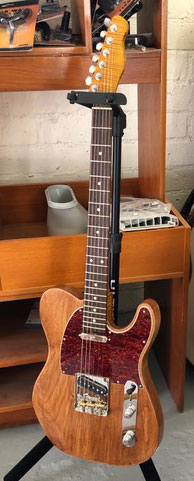
The class, at a glance:
Tuition Cost: $1,500 ($100 deposit due upon registration)
Additional Cost of Materials: Approx. $500 – $600
Frequency of Class: Once a week, on Saturdays
Length of Class: 8 hours per session
Number of Sessions: 8 sessions
Location: North Hollywood, California 91605
(near Hollywood Burbank Airport)
Start Date: 2023 classes have concluded.
2024 class dates will be announced soon.
Instructor: Larry Pearson
(310) 918-5084
lplocations@gmail.com
Class Overview
Starting from slabs of wood called “blanks,” you will use power tools—including the band saw, jointer, drum sander, router table, and drill press—to cut and shape your wood pieces into a separate guitar body and guitar neck. You will also use hand tools such as chisels, rasps, files, and sandpaper to refine the shape of your neck and body. Using a handheld router and premade templates, you will rout the neck pocket and control cavities in the body of the guitar. You will cut slots in your fretboard with a thin-kerf table saw blade, sand the fretboard to the desired radius (curvature), and hammer or press in the fret wire. You will file a bone nut blank to shape, file individual string slots in the nut, and install it at the top of the fretboard. The neck will be joined to the body using a metal neck plate and screws. You will install a partially pre-soldered wiring harness into the body, to add pickups and volume & tone controls, with minimal soldering required. You will drill holes in the body to install the bridge/tailpiece, and holes in the headstock to install tuners. When all steps of the building process are completed, you will put strings on your guitar, tune it up, plug it into an amplifier, and hear it sing!
*This is just a general guideline. Actual order of operations may vary, at instructor’s discretion.
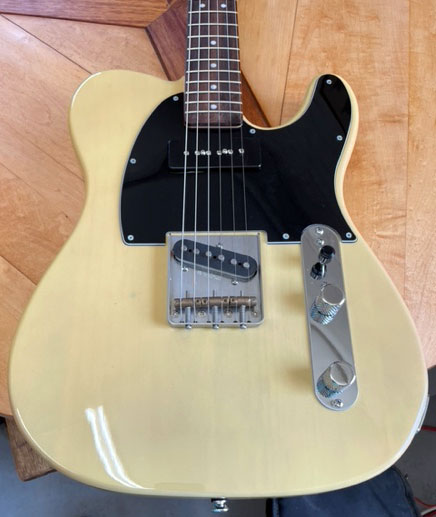
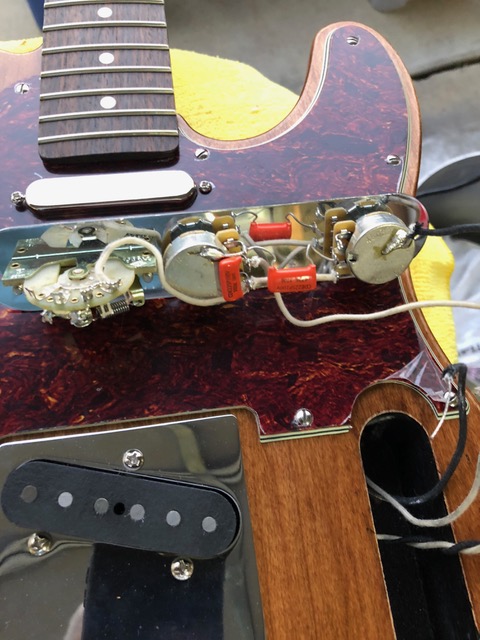
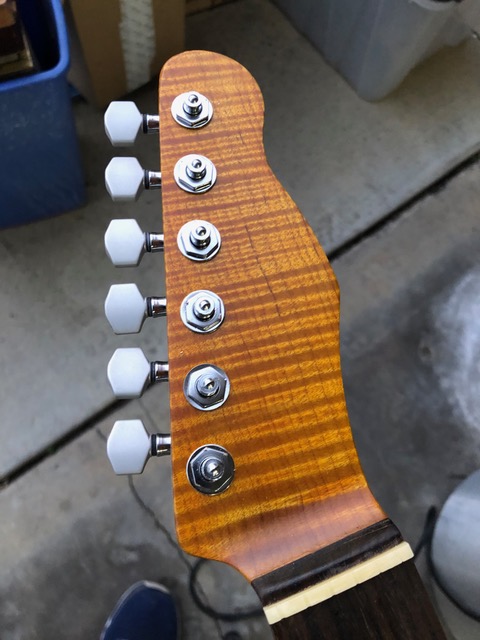
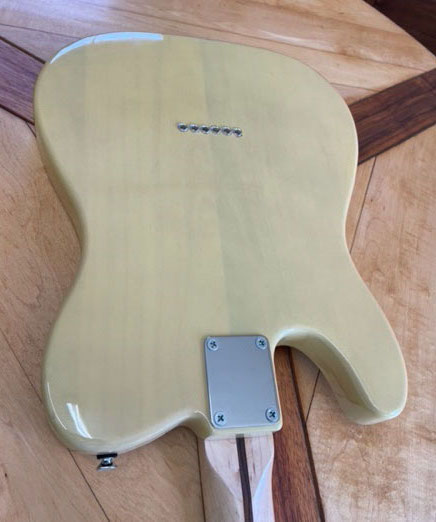
Above: Details of a completed electric guitar by instructor Larry Pearson.
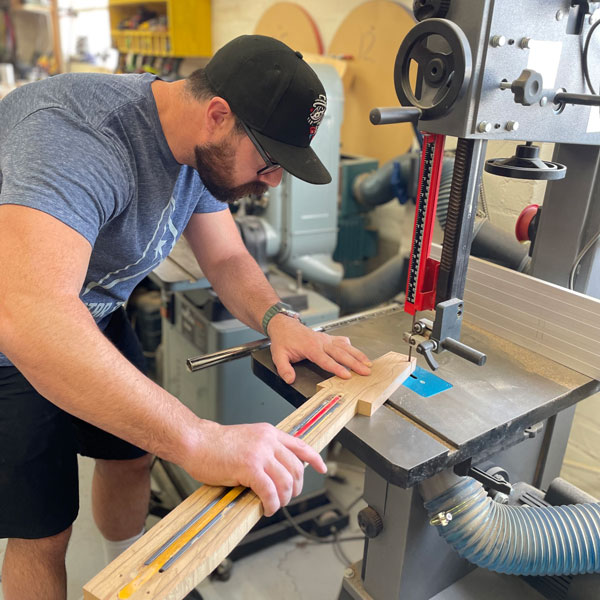
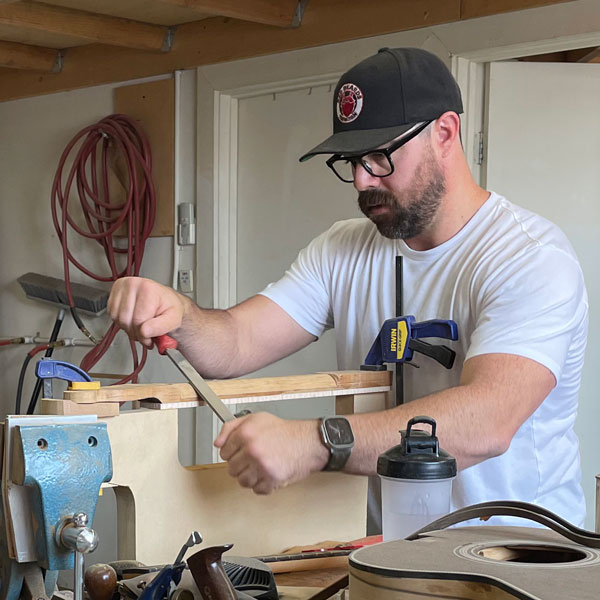
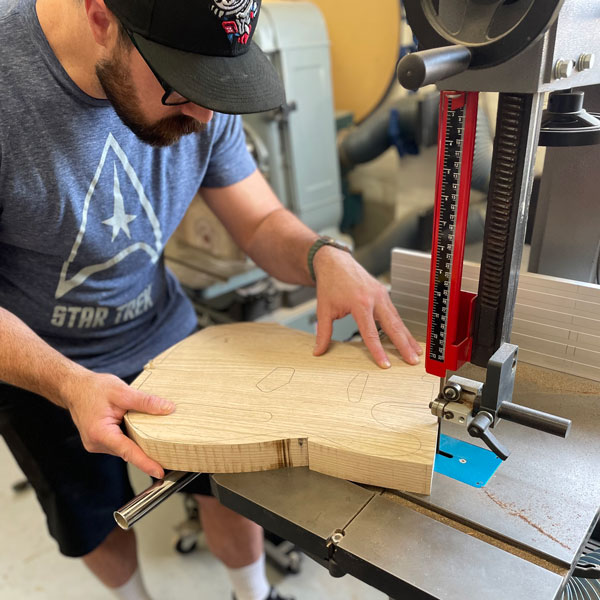
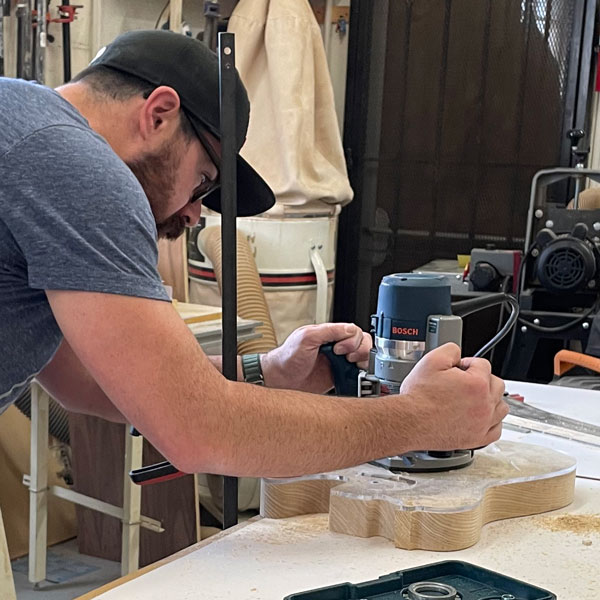
Above: Electric guitarmaking student Drew W. hard at work, shaping the guitar neck and body.
You will leave this class with a completed guitar “in the white” (i.e. with no finish applied). The instructor will discuss finishing options with you, which the student can carry out on their own, outside of class. It may also be possible to arrange additional time at the instructor’s personal workshop to apply a finish. This will be at the instructor’s discretion.
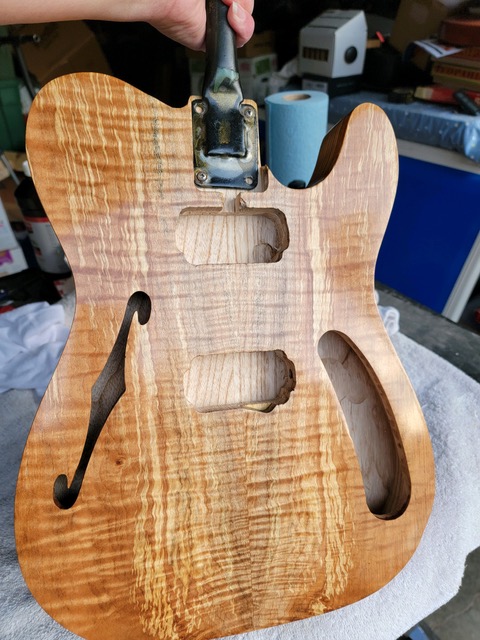
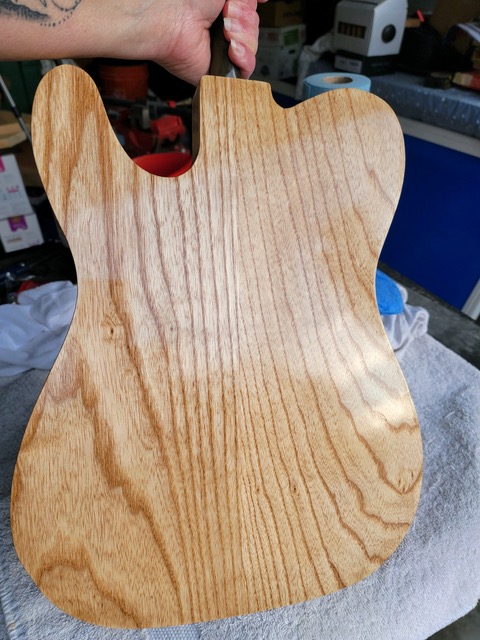
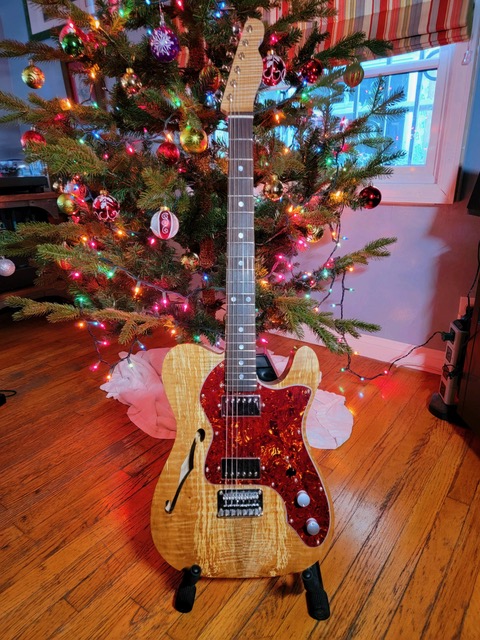
Above: In-progress photos, and the completed electric guitar by student Barbara B.
By the end of this class, you will have gained the knowledge and skills required to continue building your own electric guitars in the future. Due to limited class time and the need to keep all students moving at roughly the same pace, special requests for customizations cannot be accommodated during this class. Contact the instructor for more details.

Meet the Instructor: Larry Pearson
After retiring from the film & televison industry, where he worked as a Locations Manager for over 30 years, Larry Pearson set up his own woodworking shop in North Hollywood, California, where he builds guitars under the company name Aiden Guitars. Larry previously studied with Charles Fox at the American School of Lutherie in Portland, Oregon, where he focused on building acoustic guitars. These days, he enjoys building solid body electric guitars, with a particular affinity for the classic Fender Telecaster™ design. Larry has been an active member of SIMSCal since 2018.
Materials
Each student is responsible for purchasing their own materials, prior to the start of the class. This allows you some freedom to choose your preferred type of wood, hardware finish, etc. The instructor will provide you with a detailed list of materials needed. Especially if this is your first time building a guitar, we recommend sticking to the list as closely as possible, for ease of instruction and an enjoyable learning experience.
Most of these items can be purchased online from Stewart-MacDonald (aka StewMac), one of the most trusted sources for buying guitarmaking supplies. (You may even want to consider signing up for their “StewMax” 1-Year Membership, which gets you Free Shipping on all orders and additional discounts.)
2023 Class Materials List:
- Body blank (20″ x 14″ x 1.75″), preferably 2-piece, Swamp Ash or Poplar
- Neck blank (1″ x 4″ x 36″), Hard Maple
- Tuners: Gotoh Staggered-Height 6-In-Line Tuners (StewMac item #1953)
- Pickups: Fender Gen 4 Noiseless Telecaster Pickup Set (StewMac item #2408)
- Truss Rod: Hot Rod Low-Profile 2-Way Truss Rod, 18-inch overall length (StewMac item #2652)
- Bridge: Gotoh Modern Bridge for Tele (StewMac item #0025)
- Fingerboard: Slotted Fingerboard for Fender Guitar, 9-1/2″ Radius (StewMac item #102262 Indian Rosewood, or #102263 Maple)
- Pickguard: Tele Pickguard — your choice of color (StewMac item #0060)
- Control Knobs: Flat-Top Knob, 1/4″ Shaft (StewMac item #0190). *Purchase 2 knobs.
- Control Plate: Control Plate for Tele with Angled Slot (StewMac item #0333)
- Strap Locks: Grover Quick-Release Strap Locks (StewMac item #2030)
- Carbon Fiber Neck Rods (0.125″ x 0.325″ x 18″) (StewMac item #4408). *Purchase 2 rods.
- Jack Plate: Electrosocket Jack Mount (StewMac item #4284)
- Neck Mounting Plate (StewMac item #0131)
- String Ferrules: Flush-Fit Guitar String Ferrules (StewMac item #0196)
- Electronics: Golden Age Pre-Wired Harness for Telecaster (StewMac item #1931)
Safety and Tools
- Safety
Notice that we put “Safety” first. Safety is the number one concern in the shop. Accordingly, there will be instruction on the proper use of all tools, including bandsaw, drill press, routers, and thickness sander, used in the class. Before starting, you will be required to sign a liability waiver. - Tools
SIMSCal and/or the individual instructor will provide all of the specialty tools and fixtures necessary to complete your guitar. No tools will leave the workshop; students are not allowed to borrow tools to complete tasks outside of class. If additional shop time is needed, this can be arranged on a case-by-case basis with the instructor.
Read and sign the following forms and return to the instructor, or bring on the first day of class.
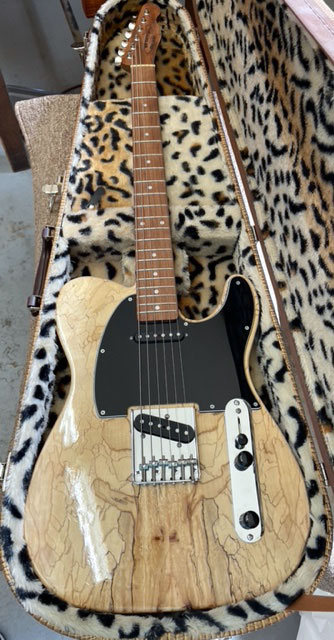
Electric Class Deposit
If you have already been contacted by the instructor and offered a spot in the upcoming class session, you can pay the $100 deposit to secure your place in the class here. You can pay with credit, debit, or bank transfer via PayPal by clicking the “Pay Now” button below.
